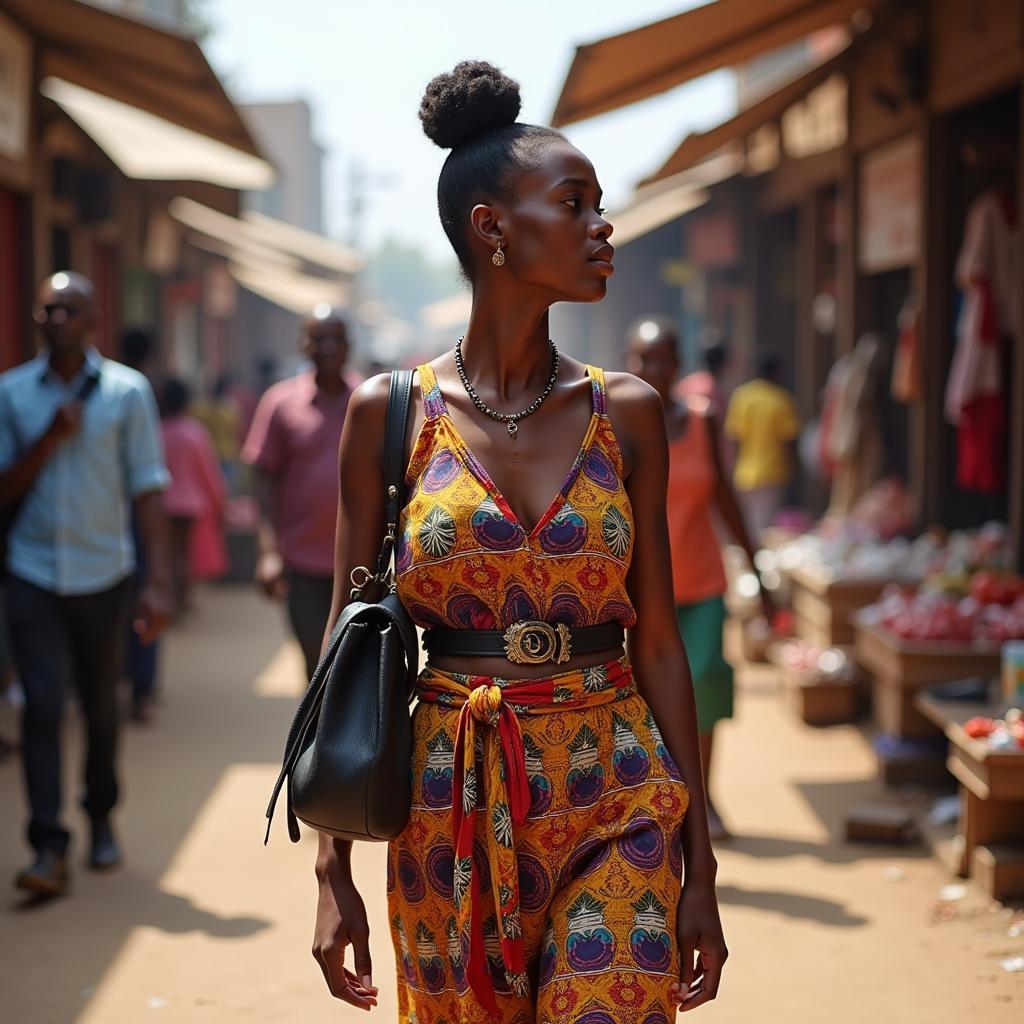The Quest for an Authentic African Accent Generator
The internet is abuzz with accent generators, promising to transform your voice into a symphony of sounds from across the globe. Among these, the “African Accent Generator” has gained popularity, sparking curiosity and controversy in equal measure. But is it truly possible to capture the vast linguistic tapestry of a continent as diverse as Africa in a single digital tool?
The Complexity of African Accents
To understand the challenges of creating an authentic African accent generator, it’s crucial to recognize the sheer linguistic diversity of the continent. With over 2,000 languages spoken across 54 countries, Africa boasts an unparalleled array of accents and dialects.
From the clicking consonants of the Khoisan languages in Southern Africa to the melodic tones of the Bantu languages in East Africa, each region, country, and even community has its own unique linguistic fingerprint.
Even within a single language, such as Swahili, accents can vary significantly depending on factors like geographic location, social class, and education.
Therefore, attempting to encapsulate this intricate mosaic of accents into a single “African accent” is not only an oversimplification but also a disservice to the rich linguistic heritage of the continent.
The Pitfalls of Generalization
Many African accent generators fall into the trap of perpetuating harmful stereotypes. They often rely on a narrow and inaccurate representation of African accents, drawing from popular media and Hollywood portrayals that often conflate diverse accents into a single, monolithic caricature.
This can lead to the reinforcement of prejudice and misconceptions about African people and their languages. It’s important to remember that language is an integral part of identity, and reducing an entire continent’s linguistic diversity to a single, often mocked, accent is disrespectful and damaging.
Embracing the Diversity of African Voices
Instead of seeking a singular “African accent,” let’s celebrate the unique and vibrant voices that make up the continent’s linguistic landscape. There are resources available that offer insights into specific African accents and languages.
- Language learning apps: Apps like Duolingo and Babbel offer courses in various African languages, allowing users to learn pronunciation and intonation from native speakers.
- Online dictionaries and pronunciation guides: Websites like Forvo and Omniglot provide audio recordings of words and phrases in different African languages, helping users to hear the nuances of various accents.
- Documentaries and films: Many documentaries and films showcase the beauty and diversity of African languages, offering a more authentic representation of how people speak across the continent.
Conclusion
While the quest for an “African accent generator” may stem from a desire to explore and appreciate African cultures, it’s crucial to approach this with sensitivity and respect.
Instead of seeking a simplified and often inaccurate representation, let’s embrace the complexity and richness of African languages and accents. By engaging with authentic resources and celebrating the diversity of African voices, we can foster a greater understanding and appreciation of the continent’s linguistic heritage.
FAQ
-
Are all African accents the same? No, African accents are incredibly diverse, reflecting the continent’s vast array of languages and cultures.
-
Is it offensive to use an African accent generator? Using an African accent generator can be offensive as it often relies on harmful stereotypes and perpetuates misconceptions about African languages.
-
How can I learn about different African accents? You can learn about different African accents through language learning apps, online dictionaries, documentaries, and films.
-
What are some of the most spoken languages in Africa? Some of the most spoken languages in Africa include Arabic, Swahili, Yoruba, Hausa, and Zulu.
-
How can I support the preservation of African languages? You can support the preservation of African languages by learning an African language, supporting organizations that promote language diversity, and raising awareness about the importance of linguistic heritage.
Need Help?
For more information and assistance with learning about African cultures and languages, please contact us:
- Phone: +255768904061
- Email: kaka.mag@gmail.com
- Address: Mbarali DC Mawindi, Kangaga, Tanzania
Our team is available 24/7 to answer your questions and provide support.


